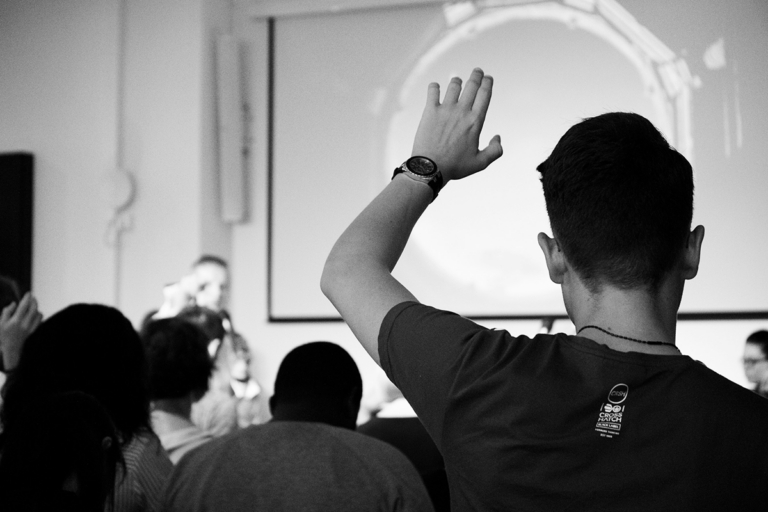
ChatGPT is an AI tool that can do essays, answer questions, and so on. Students find it exciting; they use it as it is quick and accurate as well as easy to use. Now, while this tool is likable by many, there is a concern about whether this is benefiting the learning of a person or doing more harm. Most educators consider it an assisting tool, while some think of it as an easy way out. One can’t deny how easy and convenient it is. However, its ethical implications cannot be neglected. Let’s delineate some of the core ethical dilemmas concerning students using ChatGPT in education.
The Pros of students using ChatGPT
There are many who say that AI tools are just a new-age revolution in education. Here’s how ChatGPT can help students:
- Gives quick access to information. Students can get answers to their questions instantly.
- Provides support for struggling learners. It can simplify complex concepts, making learning less intimidating.
- Encourages curiosity. With AI, students may feel more comfortable exploring new topics.
- Improves writing skills. By seeing well-structured answers, students might improve their own writing.
- Saves time. It can handle repetitive tasks like outlining essays or summarizing articles.
Another important factor is that ChatGPT is free to use. Students rarely have much spare money, so with ChatGPT, they can get some assistance without any pay. That said, tools like these can not fully replace human writers with years of experience and ample academic knowledge, like the ones employed by Academized or another essay writing service. With ChatGPT, a student can try to generate their own academic paper, but in most cases, it will be of lower quality than the one done by an expert.
The risks of using AI in education
Artificial intelligence has come under fire for its potential to diminish critical thinking skills and damage academic integrity. There have already been some instances in schools in which essays and other forms of work are perfectly completed, which raises questions regarding fairness. In this regard, teachers have to think: Is the student being educated, or are they just being crafty with AI tools? It is tough to distinguish that line as far as what is considered ethical.
Does AI make learning too easy?
Some people see tools like ChatGPT as being so easy to use that they could be detrimental to one’s intelligence. Writing an essay or solving a question is the core of education and socialization and compels students to engage in critical analysis. If the tools and resources are always available to students through AI, these crucial blueprints may be omitted, and students will be provided with answers without context.
Others rebut, saying that AI is not more advanced than calculators or search engines, which have also received criticism in the past. The only change is that when ChatGPT was developed, it was not solely designed to provide answers, unlike writing essays in turn, it made it increasingly difficult to know where providing help and breaking the honor code begin and end.
Does AI make learning too easy?
While some educators have completely banned the use of ChatGPT due to plagiarism and over-reliance, others support its usage as a means to help educate students on its responsible use. Striking a perfect balance does seem difficult, doesn’t it? Considering the pace with which AI is evolving, is it realistic to put a total ban? Most are inclined to think that it might be a more reasonable approach to educate the students about the use of the tool and AI in its entirety.
Tips for teachers to handle AI in classrooms:
- Explain what AI can and cannot do in regard to assignment submissions.
- Inform students on how to fact-check AI’s output.
- Motivate them to be creative through open-ended questions.
- Adopt new procedures to detect AI-constructed essays.
- Teach students how ethics have a vital role when using AI.
What are students saying?
A significant number of students believe that ChatGPT is not about cheating but rather an efficient tool. They believe that it enables them to work smarter instead of harder and feel less overwhelmed, targeting the exact area in which they need assistance. In their eyes, it is merely a tool, not an alternative to the learning experience.
Ethical questions we can’t ignore
Ethical principles are not simply concerned with cheating but with fairness and equality in access and concerning the future of education. Not all learners have the same level of AI access, which may aggravate accessibility concerns. Also, some AI devices gather user information, and therefore, data privacy is a cause for concern.
Where do we go from here?
The ethical debate around ChatGPT is complex, and there are no easy answers. It’s a tool with incredible potential, but it’s up to educators and students to use it wisely. The next time you’re tempted to rely on AI for an essay, think about what you’re gaining and what you might be losing. There’s no harm in using tools, but don’t forget the importance of learning the old-fashioned way, too.



